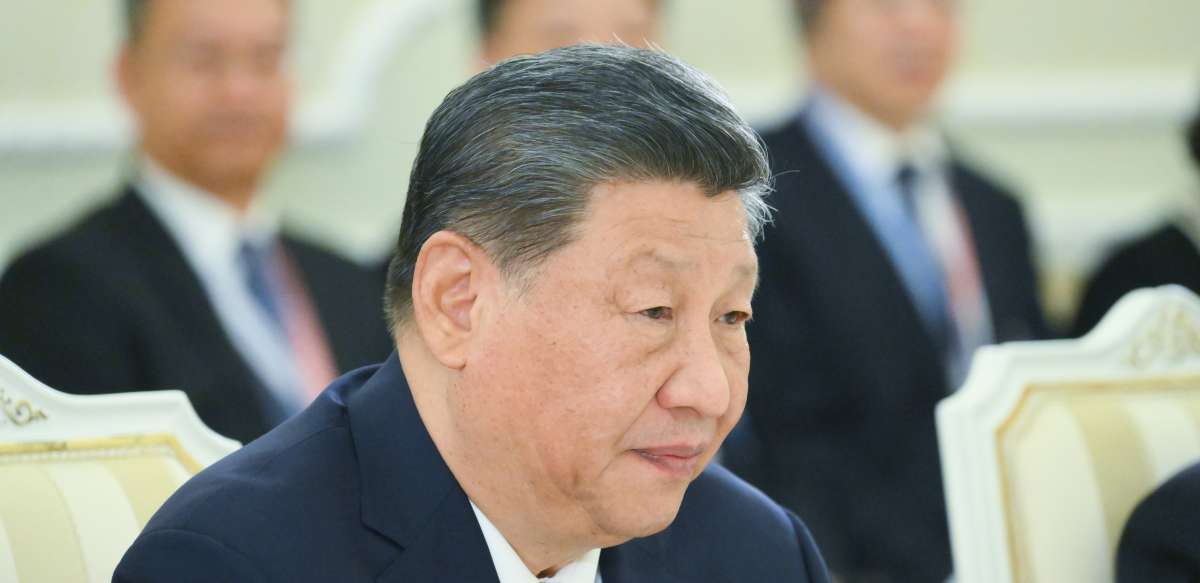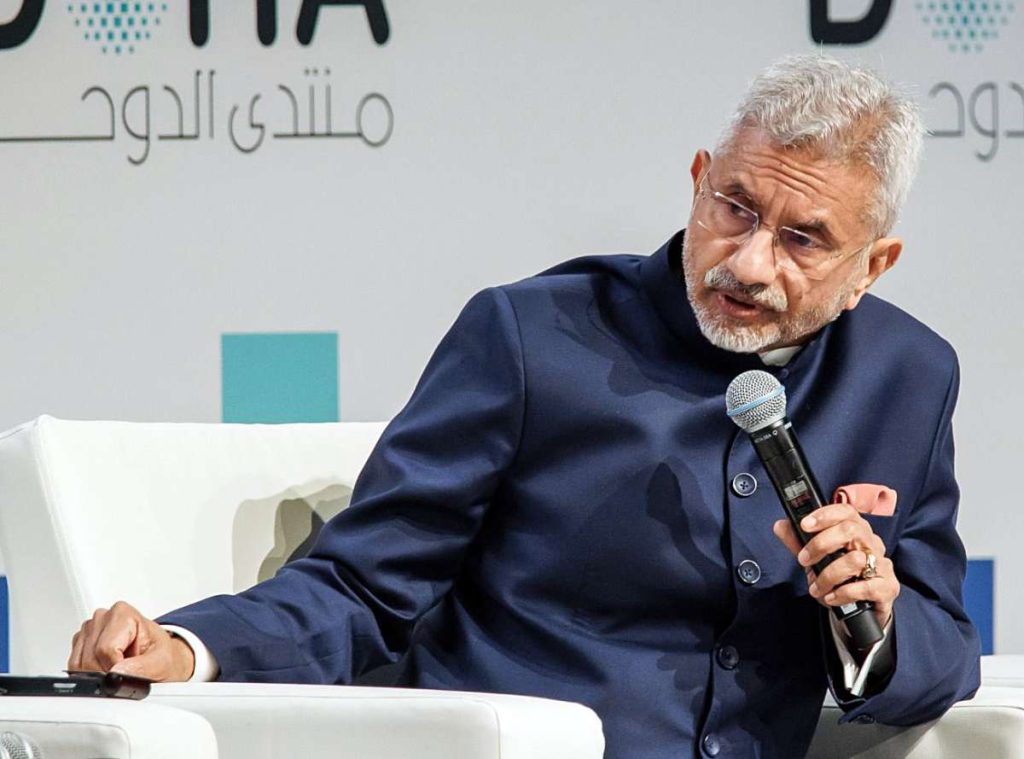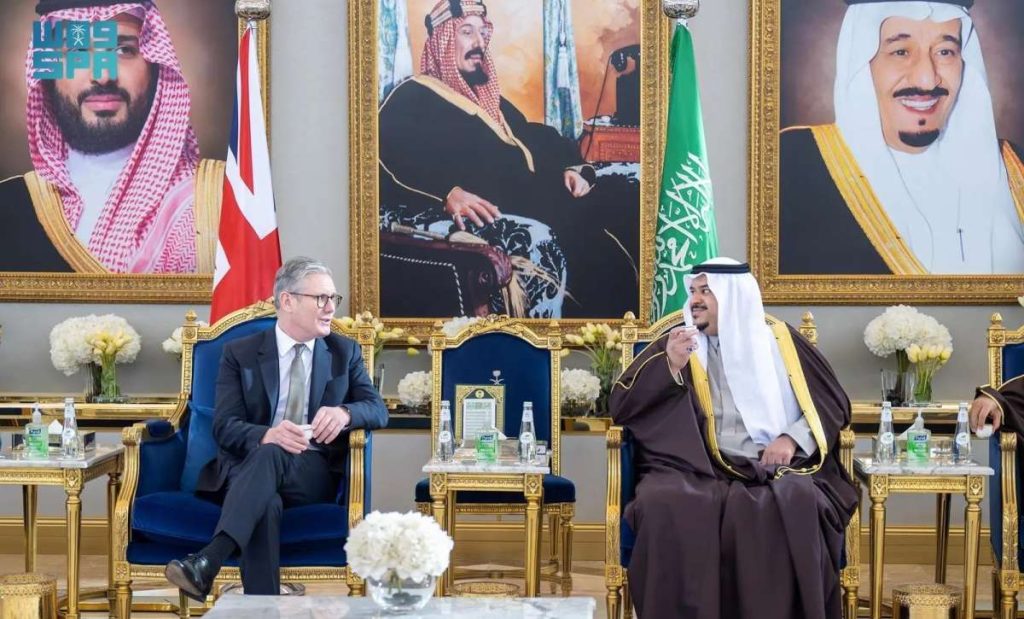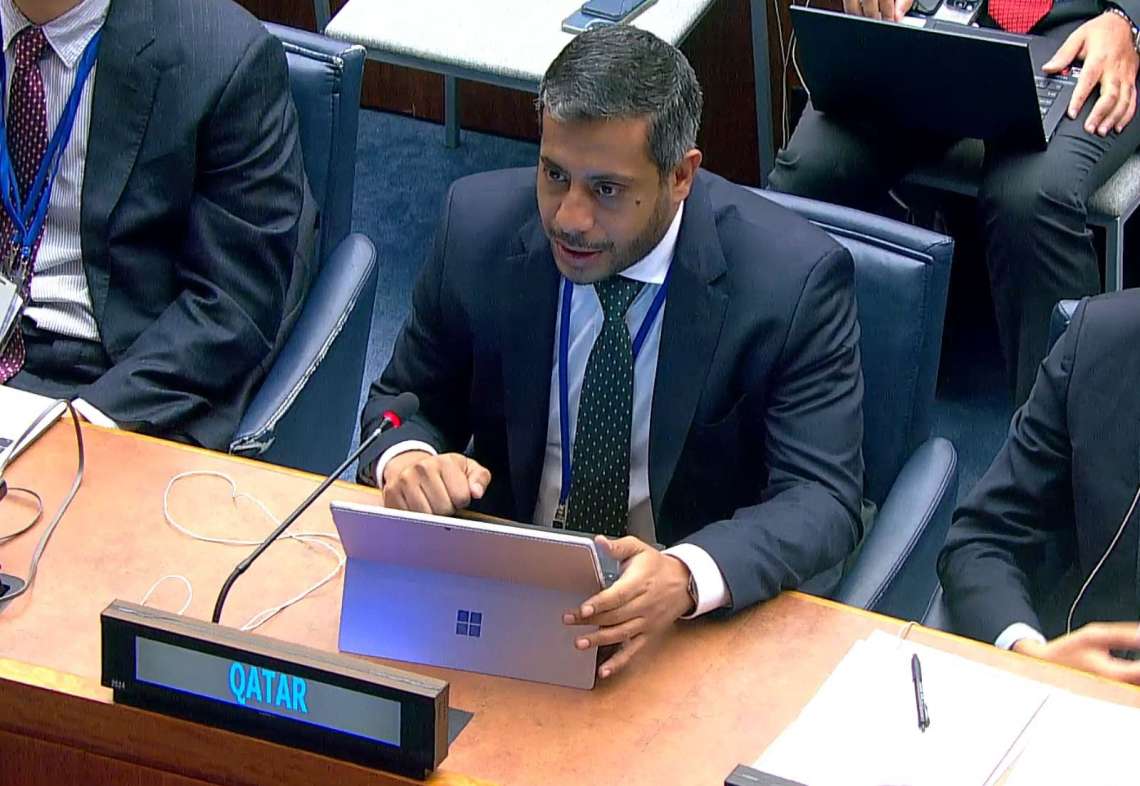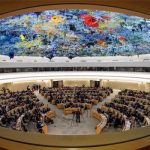Some Western leaders naively hope China can resolve conflicts, like Trump’s suggestion to mediate between Russia and Ukraine. This is unrealistic, given China’s close ties with Russia and its support for the war…reports Asian Lite News
Much of the gloss has faded from China’s and Chairman Xi Jinping’s dream of an irrepressible rise to the pinnacle of world power. Poor handling of the COVID-19 crisis, a struggling economy, difficult demographic realities, social disillusionment at home, aggrieved neighbors over China’s poor behavior and aggression, tensions with the USA and international realpolitik are all conspiring to make life extremely difficult for China.
Xi’s work report at last year’s 20th Party Congress admitted for the first time that China “faces high winds, choppy waters and dangerous storms”. This has become ever more evident throughout 2024. Yet instead of modifying its approach or showing a modicum of humility, Beijing continues to cajole and blame others for its woes.
As one example, Xie Feng, China’s Ambassador to the USA, tweeted, “FM [Foreign Minister] Wang said the future direction of China-US relations depends on the choices made by Washington…” He added, “It’s hoped that the US side will work with China in the same direction,” and that the incoming US administration would “handle its first steps in China-US relations properly”.
Nicholas Burns, the US Ambassador to China, promptly replied, “Actually, the future of US-China relations depends on choices China makes too. Will China stop its support for Russia’s brutal war in Ukraine? Stop its bullying of the Philippines? Both sides have choices to make.”
China has been very clear in its choices. Right from the beginning, Xi has profoundly supported tsarist comrade Vladimir Putin as he prosecutes his bloody war against Ukraine. Of course, Beijing has pretended to be a neutral party, but it is not. Showing its true colors and its affinity with any who oppose the West, China has also supported other despots such as those ruling North Korea, Syria and Iran.
To give one pertinent example, Xi met Syrian President Bashar al-Assad in the city of Hangzhou in September 2023 and established a China-Syria strategic partnership. State media recorded, “Xi noted that the establishment of the strategic partnership will be an important milestone in the history of bilateral ties.”
The official account of their meeting continued: “Xi emphasized that China will continue to work with Syria to firmly support each other on issues concerning the two sides’ respective core interests and major concerns, safeguard the common interests of both countries and other developing countries, and uphold international fairness and justice”.
Beijing declared it supported Syria in opposing foreign interference, rejecting unilateralism and bullying, and safeguarding national independence, sovereignty and territorial integrity.

For his part, Assad, a butcher credited with a war resulting in the deaths of over half a million Syrians – more than half of which are civilians, and which caused a quarter of the pre-war population to flee – said China has always aligned itself with international fairness and justice, upheld international law and humanitarianism, and played an important and constructive role. References to “fairness and justice” are laughable. Rather, China actively supported the brutal Assad regime, with Assad and his family having taken asylum in another steadfast supporter of his murderous regime, Russia.
Iran, too, has been left reeling by recent events. This year has seen its strategy of proxy forces unravel in spectacular fashion, as first Hezbollah in Lebanon and then Assad’s regime were emasculated. Tehran’s fanatical regime had positioned itself as the indispensable protector in its “ring of fire” strategy encircling Israel, imposing perpetual, manufactured dependencies upon others through various conflicts. Israel’s airstrikes against Iran – which targeted missile and drone production facilities and degraded its air defenses – shattered the notion that Iranian territory was inviolable. Iran’s compulsive desire to fan the flames of war are proving self-destructive, with Syrian rebel groups and anti-Iranian forces now emboldened. Iran’s regime is facing a crisis of legitimacy, as its anti-Israel and anti-Western posture seems to have spectacularly backfired.
Iran’s largest trading partner is China, plus the latter is its biggest market for oil products. The two nations signed a strategic partnership plan in 2021, paving the way for up to USD400 billion in potential Chinese investment into Iran over the subsequent 25 years. Such foreign investment is critical to Iran, which faces crippling sanctions from the West.
China receives illicit Iranian oil at heavily discounted prices, with sales reaching an estimated 1.4 million barrels per day. China will also develop two ports in Iran, which will help secure access to Middle East resources and weaken US influence in the region. Nonetheless, Iran accounts for just 13% of Chinese oil imports, which is a smaller percentage than from other Gulf states like Saudi Arabia.
A Carnegie Endowment report noted, “The need to balance between Iran and the Gulf states probably is one reason why deeper economic cooperation between Beijing and Tehran has been slow to materialize. Since finalizing their cooperation agreement in 2021, Iran has only seen $185 million [in investment] from China.”
Furthermore, “Security ties are meanwhile very limited. The 2021 strategic partnership plan lays out plans for more joint military exercises and weapon systems development, and it is rumored that China has assisted Iran’s ballistic missile program by providing relevant satellite technology. But so far the agreement’s military fruits involve only a few joint drills that the US intelligence community has judged to be of little operational value.”
Significantly, though, Xi brokered a reconciliation deal between Iran and Saudi Arabia in March 2023. This was a feather in China’s cap, and helped further undermine American influence in the Middle East.
However, there is still a forlorn and naive sentiment among some Western leaders that China can actually resolve current conflicts. For example, incoming President Donald Trump recently suggested China could play a role in brokering peace between Russia and Ukraine. This is laughable considering Beijing’s deepened ties with Russia, its “no limits partnership” and its refusal to denounce Putin’s invasion. Furthermore, the country’s industry has been busily supplying equipment that aids the Russian war machine.
Trump tweeted, “Too many lives are being so needlessly wasted, too many families destroyed, and if it keeps going, it can turn into something much bigger and far worse. I know Vladimir well. This is his time to act. China can help. The world is waiting.”
Distrustful of Chinese loyalties, Ukrainian President Volodymyr Zelensky wisely said, “If China wants to, it can force Russia to stop this war. I do not want [China] to act as a mediator. I would like it to put pressure on Russia to put an end to this war.”
So China is facing serious upheaval because of its friendships with various regimes like Russia, Iran and Syria. More and more in the world are becoming aware of Beijing’s duplicity and its interference in their internal affairs. Indeed, late last month Lithuania declared three members of China’s representative office as persona non grata. Lithuania cited violations of the Vienna Convention and Lithuania’s legislation as reasons for this diplomatic move. Bilateral ties had already soured after the Baltic nation permitted Taiwan to open a de facto embassy there in 2021.
China blamed Lithuania for intensifying efforts to undermine bilateral relations. Of course, this is pro forma for China. It vociferously blames others for any tensions in relations, plays the role of an innocent victim, and tells the other party to rectify its behavior. China never admits responsibility or seeks to reform its actions and attitude, ever.
China’s covert support for Russia may have played a part in the spat with Lithuania. Furthermore, a Chinese ship is suspected of deliberately sabotaging two undersea fiber-optic cables that run between Sweden and Lithuania, and Finland and Germany. The ship, Yi Peng 3, is accused of deliberately dragging her anchor along the seabed for more than 110 miles on 17 November. The ship remains encircled by Danish, German and Swedish coast guard vessels to prevent it from fleeing.
Yi Peng 3 behaved suspiciously, turning off its transponder and zigzagging. Damage to the ship’s anchor and hull are consistent with cable cutting. The cargo ship, captained by a Chinese national and with a Russian sailor aboard, had departed the Russian port of Ust-Luga. While it is unclear if the actions were sanctioned by the Chinese government, it follows an incident in October 2023 when the anchor of a Hong Kong-flagged, Chinese-registered vessel named NewNew Polar Bear damaged two subsea data cables and a gas pipeline in the Baltic Sea. Europe is seriously considering China as a threat to its security.
Whilst there are question marks over nefarious acts by Chinese-flagged ships in the Baltic Sea, there are no such illusions over Beijing’s provocations in the South China Sea. On 2 December, for instance, a Chinese vessel shone a high-intensity laser on a boat belonging to the Philippine Bureau of Fisheries and Aquatic Resources (BFAR) six consecutive times. The dangerous incident occurred near Half Moon Shoal, just 111km from Palawan, and therefore well within the Philippine exclusive economic zone.
Two days later, a China Coast Guard vessel collided with and fired its water cannon at another BFAR boat near Scarborough Shoal. The blast of water was aimed at navigation and communication equipment, clearly intending to cause damage. Instead of enforcing the law, such Chinese vessels are implementing an illegal, territory-grabbing pogrom against neighbors like the Philippines.
Of course, China continues to coerce and bully Taiwan at an unprecedented rate. Taiwan raised its alert level on 9 December, as Taipei reported nearly 90 Chinese navy and coast guard vessels in waters near the island. China had been expected to launch a round of exercises in response to Taiwan President Lai Ching-te’s trip to the Pacific that included stops in Hawaii and Guam.
China is an expert at manipulating public opinion too, and it routinely uses forums like the United Nations to push its one-eyed cases. This is certainly the case as it ostracizes Taiwan and pleads it has no international status. To do so it relies on claims that UN General Assembly Resolution 2758 establishes its “One China” principle as a matter of international law.

However, its assertions are based on flawed legal assumptions and arguments. The German Marshall Fund of the USA released a report stating: “The PRC’s agenda has benefitted from its sustained pressure and influence on UN entities and officials; a pattern of misinterpretation, acquiescence and misunderstanding by those entities and officials; limited pushback from the United States, Taiwan’s diplomatic allies and other states (especially in high-profile forums); and structural features of the UN (including its one- state, one-vote format and the low salience of Taiwan issues for many members).”
The same report said China deliberately “mischaracterizes the contents of Resolution 2758…and ignores the limits to the UN’s powers to make international law”. It noted that Beijing has made gains in three areas – UN requirements that references to Taiwan use the nomenclature “Taiwan, province of China”; UN statements that Taiwan is an “integral part” or “part” of China; and misconstruing UN statements concerning “recognition” of China as indicating Taiwan’s lack of international legal status.
This is dangerous, because wider acceptance of China’s position boosts the credibility of its claims that it can lawfully use force to unify Taiwan with the Mainland. Concern over China’s deliberate distortions is rising in places like the USA, but “pushback has been limited and inconsistent, and publicly visible rebukes have been relatively rare,” the German Marshall Fund authors said.
China is powerful enough that it is willing to endure vilification for issues dear to its heart – including its abnormal obsession with Taiwan. Unfortunately, many countries are overawed by China’s economic and political clout and refuse to stand up to its browbeating tactics. China is at its heart a repressive and authoritarian regime – magnified under Xi – but it is experiencing harsher resistance than ever as more countries discern the true nature and ambitions of the Chinese Communist Party. Although the Syrian regime has fled, Iran is weakened and Russia is embroiled in a catastrophic war, Xi has little interest in choosing better-quality friends.
ALSO READ: China Stirs up Taiwan Strait
ALSO READ: US lawmakers raise concerns over Webull’s ties to China

